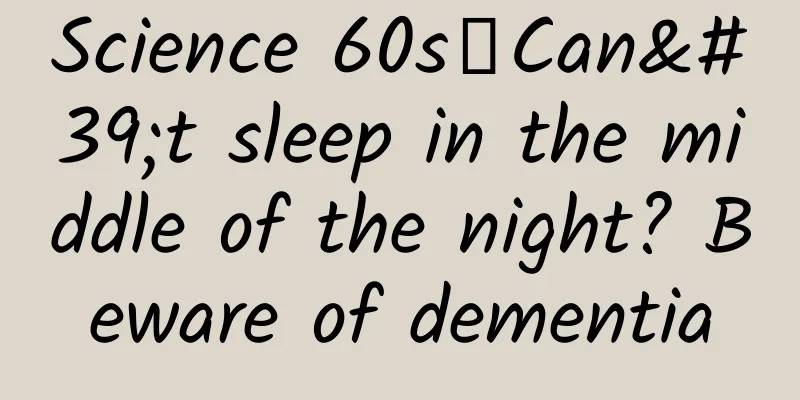Does dating make you fat? Does “love brain” make you less intelligent? Are these true?

|
The most vicious curse for a young person, besides poverty and layoffs, is probably to wish him or her "love brain". Whether it is the Internet's overwhelming memes or the victims of broken love speaking out, all the cries and curses point to one sentence: love brain is the terminal illness that should be included in medical insurance in the 21st century. Does love brain really exist? What are the specific manifestations? How can we enjoy love rationally? On the occasion of Valentine's Day, I hope this popular science article will help you "make a move without regrets" in love. Tuchong Creative 01 Love Brain is Irreversible But you don't have to lock up your love A joint study between China and the United States divided 100 college students into three groups based on their love history: "in love," "break up," and "never in love," and scanned their brains when they were in a state of emptiness. The results showed that even if the brain was not thinking about anything, the impact of love on the brain could still be seen. Even if you broke up a long time ago, the brain would show differences. In other words, from the moment you stepped into the river of love, you already have a "love brain." At present, scientific research has found that falling into a state of "love brain" will cause people's IQ to drop. A study published in "Nature" by researchers from the Scripps Research Institute in the United States provides an explanation for this phenomenon from a biochemical perspective. Forgetting can help the brain manage memory (because there are too many memories), and forgetting is divided into permanent and temporary. In this study, researchers discovered the neurobiological mechanism that causes short-term forgetting. There is a memory inhibition of short-term forgetting mediated by dopamine neurons in the brain, and the activation of dopamine neurons may cause temporary forgetting of some memories. These memories have not disappeared, but they cannot be retrieved for a short period of time. As time goes by, when they can be retrieved again, this part of the memory will become clear again. This provides an explanation for the "decline in intelligence" in love. When we are in love, a large amount of dopamine is secreted, and some of our memories are temporarily suppressed, making some of our common sense judgments blurred and our rationality gone. When we "fall out" of love, dopamine secretion decreases, and these temporarily suppressed memories become clear again, and rationality is restored. However, you don't have to close your heart and lock your love. "Love brain" does not necessarily bring negative effects. The results of the study show that the brains of the love group show a significant increase in functional connectivity in the reward, motivation and emotion regulation systems, and social cognitive systems. Simply put, the longer the relationship lasts, the more active a group of neurons in the corner of your brain will be. Not only that, they are also particularly united, making your emotions rich and sensitive, and making social interaction more comfortable. It can be seen that even if "love brain" can reduce one's intelligence, it can improve your emotional intelligence and give you more delicate and profound experiences in life. Tuchong Creative 02 Love not only hurts your brain, but also makes you fat Researchers at the University of Queensland in Australia analyzed data from a decade-long survey of 15,000 volunteers and concluded that love makes people fat . New Scientist reported this. In the study, participants were required to undergo physical examinations at regular intervals and answer a series of survey questions, including daily exercise, frequency of fast food consumption and TV watching. The results showed that people who were in a harmonious relationship were 5.8 kg heavier than single people on average, and those who lived together for two years or more gained more weight. Another study data came from two groups of similar single people, one of which was later divorced and the other remained single. After a period of time, the BMI of the two groups was compared. The study found that on average, the risk of men becoming obese after marriage was 2.07 times that of those who remained single, and the risk of women becoming obese after marriage was 2.27 times that of those who remained single. The risk of obesity for men who were divorced peaked in the second year, while the risk of obesity for women who were divorced increased year by year. Researchers believe that the main reason is that after having a partner, people no longer need to maintain an attractive figure and will start to eat more. The survey also found that marriage and cohabitation can also encourage some unhealthy behaviors. When couples are not at home, they tend to stay at home and watch TV together, eat big meals, drink alcohol, etc. When there are children at home, couples also tend to eat leftovers and snack. These are all behaviors that can lead to weight gain. Interestingly, same-sex couples perform much better than heterosexual couples. After surveying more than 30,000 same-sex couples, researchers found that they did not gain much weight even if they were in love. Of course, "gaining weight" in love is actually a kind of happy fat and does not need to be regarded as a disaster. Even so, we still need to maintain a healthy lifestyle in love and never give up body management. After all, good health is the loyal partner that can accompany you throughout your life. Tuchong Creative 03 How to view the "love first" mentality The changes in brain mechanisms and lifestyles brought about by love deserve attention. At the same time, we should be more alert to the "love first" thinking mode, which is also the state most often referred to when people talk about "love brain". The more people with love brain care, the more they are prone to worry about gains and losses, they desire intimacy and companionship, but they are sensitive and suspicious. In relationships, they especially like to test each other, are accustomed to self-sacrificing contributions, and are afraid of being abandoned when alone. Once they can establish a connection with their lover, it is like grabbing a life-saving straw. Professor Tennov used 400 couples from the University of Bridgeport in Connecticut as samples, asked them about their attitudes towards love, and analyzed their diaries, and found that those with "love brain" usually have "intrusive thinking", feeling that the other person is invading your brain all the time. In fact, when we are in love, we wish to be with each other every moment, like conjoined twins, but this tendency is particularly obvious in the world of "love brain". Data shows that those with "love brain" spend 85%-100% of their time thinking about their lovers, which seriously affects their daily lives. They cannot work or study well because they cannot concentrate at all. In addition, those with "love brains" are more likely to be attracted to those who "cannot get the love they want", which is called "frustration attraction". When love is hindered and frustrated, the abandoned person will be more attracted to and dependent on the lover, that is, they will show a state of "deeper love" and "unable to extricate themselves". In 1996, Helen Fisher used fMRI to scan the brains of lovers who had been in love for an average of 7 years, and asked them to stare at photos of their lovers/strangers. The results showed that the VTA (ventral tegmental area of the midbrain) area of the brain was activated, and this area is responsible for controlling people's reward system. At the same time, the VTA area is close to the brain area that controls people's basic physiological needs, so love may be easily regarded by some people as a basic need for survival and a reward. This also determines that even if they break up, it is difficult for "love brains" to forget each other. Tuchong Creative It can be seen that being addicted to love can easily lead to people's extremely unstable emotional state, and even affect their normal work and study functions. Love is beautiful, but it is risky to pin your life too much on a love relationship. If you are prone to "love brain", you might as well focus on self-care. In fact, routine can bring us a perceptible sense of real security, and it can also help relieve anxiety and stress and promote mental health. Focusing the attention and focus of life on your daily life can enhance self-care, which is very effective in relieving separation anxiety. Whether it is adding some green plants in the room or placing a bouquet of flowers on the desk; whether it is sharing each other's troubles when gathering with friends, or spending time researching a dish... Feel your own existence in every moment, feel the connection with yourself, and feel the power of loving yourself a little more. I hope that your love and care for myself can be the best companion on the road to pursuing love. Author | Tang Yicheng, member of the Science Popularization Committee of the Chinese Psychological Society and executive deputy director of the Beijing China Science Popularization Mental Health Promotion Center Review | Tao Ning Institute of Biophysics, Chinese Academy of Sciences This article is produced by the "Science Rumor Refutation Platform" (ID: Science_Facts). Please indicate the source when reprinting. The pictures in this article are from the copyright gallery and are not authorized for reproduction. |
Recommend
Why are there no affordable ultrabooks?
When Intel announced the new concept of "Ultr...
What efforts have scientists made to help you eat more sweeter sugarcane? (Part 1)
Produced by: Science Popularization China Author:...
Revealing the secrets of Tik Tok’s genes and the authenticity of Tik Tok influencers’ traffic!
There are cracks in everything, that's where ...
Sina Micro Wealth's Rapid March: A Subversive Game for Latecomers
It seems that overnight, those who used to check ...
Android's use of Java infringes Oracle's copyright? Google may pay $8.8 billion
Google and Oracle are nearing the end of a years-...
After 4 tests, how is iOS 15 doing now? Experienced people reveal 3 details
After 4 tests, can iOS15 be used normally now? Pe...
Eating too much for a long time is more harmful to your body than you think (not just making you fat)!
People always eat too much easily, sometimes beca...
Teach you how to make money with Douyin from scratch - techniques to attract fans and monetize
Tik Tok - the second wave of short video populari...
Taxi-hailing apps are fighting again, this time for entry
Signs of Didi Dache and Kuaidi Dache competing wi...
5 ways to promote your search results on Baidu
We all know that the effectiveness of Baidu searc...
In heavy rain, are new energy vehicles more waterproof than ordinary cars?
Audit expert: Wang Jinlu Shenzhen Lingkang Techno...
Be careful in the rainy season! Wading in the water after the rain may cause poison
Guangzhou has been hit by heavy rains since May, ...
It is a land giant, but it eats with its nose! The reason is a catalyst from millions of years ago!
Elephants are the largest terrestrial mammals, an...
New way to play group lottery activities!
Group buying is regarded as a social method under...
User operation: AARRR user model and traffic pool model explained in detail!
1. What is the AARRR user analysis model? AARRR i...









